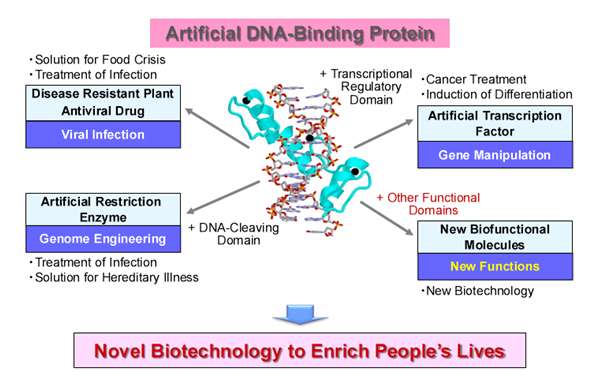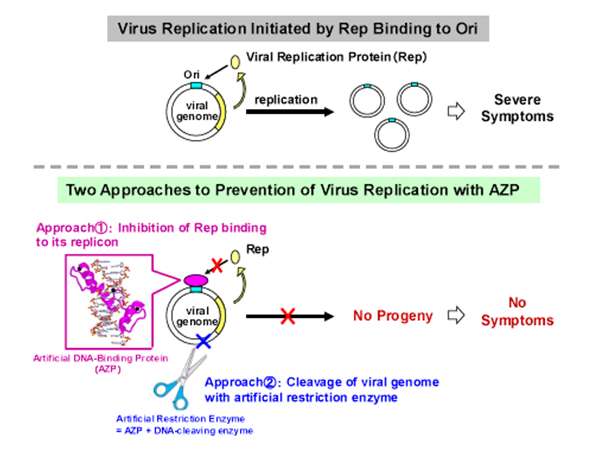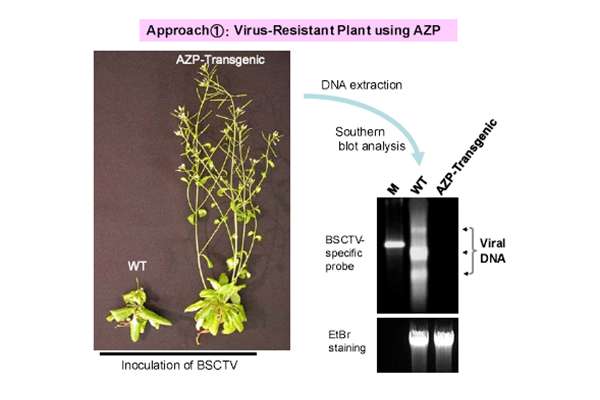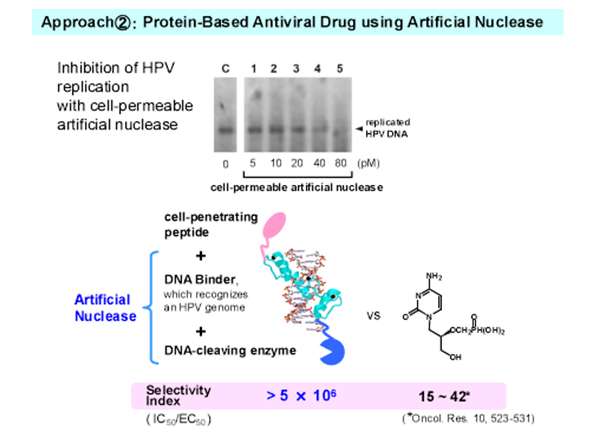Designer DNA-binding proteins to combat viral infections in agriculture and medicine

"Having trained as a chemist, in the early days of my research career I wanted to find ways of treating cancer based on knowledge of organic chemistry," says Takashi Sera, Professor at Department of Bioscience and Biotechnology. "But I soon realized that chemical molecules are hard and too rigid for such purposes. That is when I decided to focus on the use of proteins."
And the outcome of this shift in strategy was the development of unique artificial DNA-binding proteins to prevent the proliferation of viruses in both plants and for treating cancer in humans. Specifically, Sera designs DNA-binding proteins to bond to a target virus 1000 times more strongly than the replication protein of the virus itself. Such blocking of bonding between a virus and its own replication protein prevents the spread of the virus.
Important agricultural applications of DNA-binding proteins for producing plants resistant to virus infection include making virus-resistant cassava—a major crop and source of food for millions of people in Africa and Asia. Sera and colleagues have already produced proteins for tomatoes and are currently working on wheat. "The critical point about using DNA-binding proteins for antiviral strategies is that they are expected to be free of side effects," explains Sera. "The reason is because our proteins are produced by modifying natural proteins that already exist in everyday vegetables and meats." Sera and his group have also made tests on beet severe curly top virus—spread by so-called beet leafhoppers—that affects crops in western United States.
Sera has also come closer to realizing his dream of treating human cancer. "We are testing our approach for treating human papillomavirus," explains Sera. "This is strongly linked with cervical cancer. Side effect free treatment is particularly important for treating human diseases."
-

Two Approaches to Prevention of Virus Replication with Artificial DNA-Binding Protein -

Approach #1: Virus-Resistant Plant using Artificial DNA-Binding Protein -

Approach #2: Protein-Based Antiviral Drug using Artificial Nuclease
More information: Takashi Mino et al. Gene- and Protein-Delivered Zinc Finger–Staphylococcal Nuclease Hybrid for Inhibition of DNA Replication of Human Papillomavirus, PLoS ONE (2013). DOI: 10.1371/journal.pone.0056633
Takashi Mino et al. Cell-permeable artificial zinc-finger proteins as potent antiviral drugs for human papillomaviruses, Archives of Virology (2008). DOI: 10.1007/s00705-008-0125-7
K. Tachikawa et al. Regulation of the endogenous VEGF-A gene by exogenous designed regulatory proteins, Proceedings of the National Academy of Sciences (2004). DOI: 10.1073/pnas.0406473101
Rational design of artificial zinc-finger proteins using a nondegenerate recognition code table. Biochemistry. 2002 Jun 4;41(22):7074-81.
Inhibition of virus DNA replication by artificial zinc finger proteins. J Virol. 2005 Feb;79(4):2614-9.
Journal information: PLoS ONE , Proceedings of the National Academy of Sciences , Biochemistry
Provided by Okayama University




















